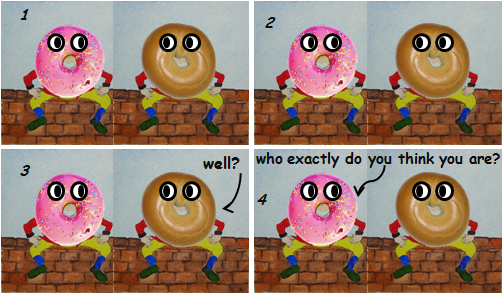Italo Calvino's Cosmicomics is a brilliant selection of his short stories. Each story takes a scientific fact and weaves a very imaginative fantasy around it. All these stories are told from the point of view of a know-it-all and ever present narrator called Qfwfq. Some of the stories are a little bit of a stretch in terms of the patience required of the reader but most of them are just pure inspired storytelling of the highest order. What I find amazing about his stories is a certain kind of absurdist humor which I have found in some other places (most conspicuously in Woody Allen's insanity defense, Alice in Wonderland, parts of Catch-22, and to some extent in Vonnegut and Douglas Adams)Â and which, in my opinion, is incredibly hard to do well.
As an example, his story 'All at one point' begins with the scientific fact that back in the day all the matter in the universe was concentrated at one point (Big Bang) which is followed by Qfwfq casually saying 'naturally, we were all there.' The story goes from there but to me there is something amazing about that first sentence as well. It represents a discontinuous leap of imagination which makes possible lines of fiction which are unattainable to most of us. There is a certain logic behind it (I mean, of course everybody was there!) which makes this line so much more funny than a scenario which doesn't necessarily have a logic of its own (like a man falling over a banana peel). The story carries forth this style which is the hallmark of such absurdist humor. In which characters behave in manners which appear highly unnatural to the reader but which make complete sense to the characters themselves. These characters state the most jaw dropping of facts in the most natural manner and often find themselves in situations which are perilous but ultimately ridiculous. It is their incapacity to tell how ridiculous their situation is which makes their stories so funny. Which makes me think, if there is a God looking down at humans he must be having a damn good time. I find that in such stories, as important and satisfying as the actual fantasy is, it is almost more important and funnier how the author maintains that internal logic of the characters themselves. The former part appealing to the creative side and the latter to the rational one.
Such internal logic is also necessary because it shows that just because the book is a fantasy the author is not taking the reader for a ride by freeing himself of all rules. This, I feel, is what makes it so difficult to write good fantasy because a good fantasy must have an additional responsibility to be coherent and logical since it is so easy to write something which isn't. Any Tom, Dick, and Harry can come along and spew his dreams and nightmares over the sorry pages of a novel. Unfortunately when that happens the world has to make room in the cosmic trashcan for another 'Kafka on the shore'. Guided with beautiful logic, however, we get Calvino's book which treads the trembling and faint line between believability and absurdity with such finesse that reading his stories becomes a pleasure.






